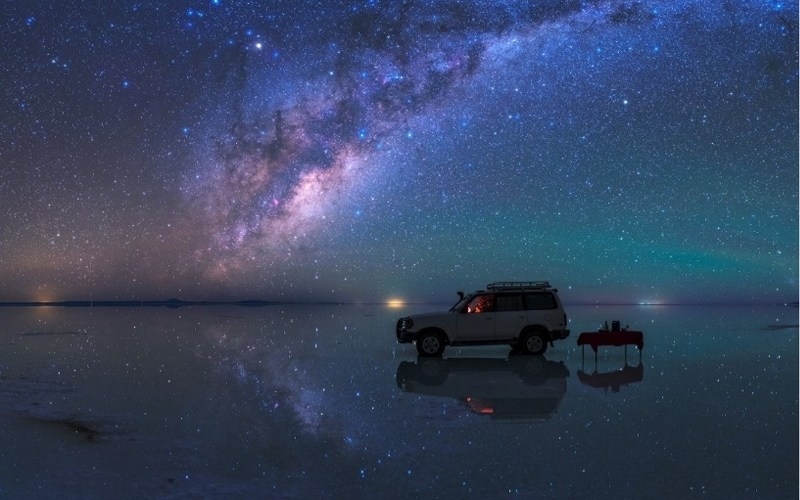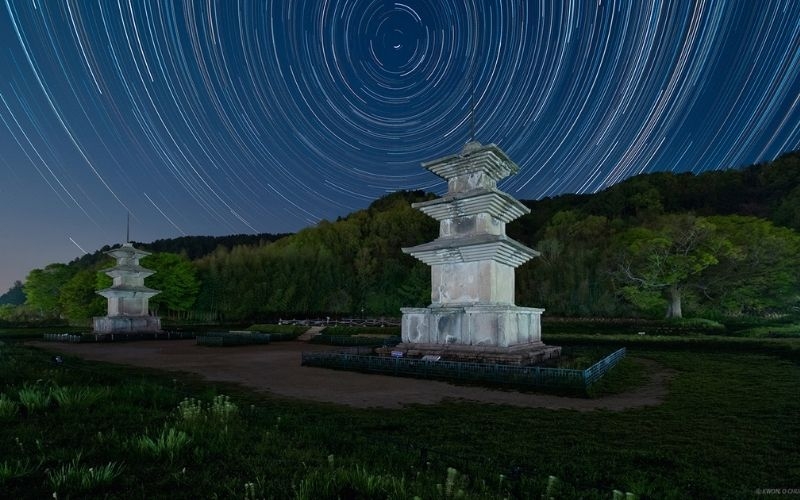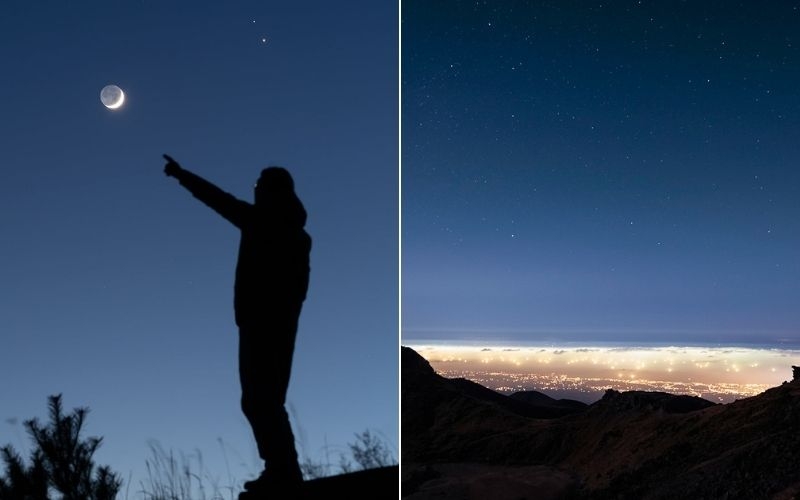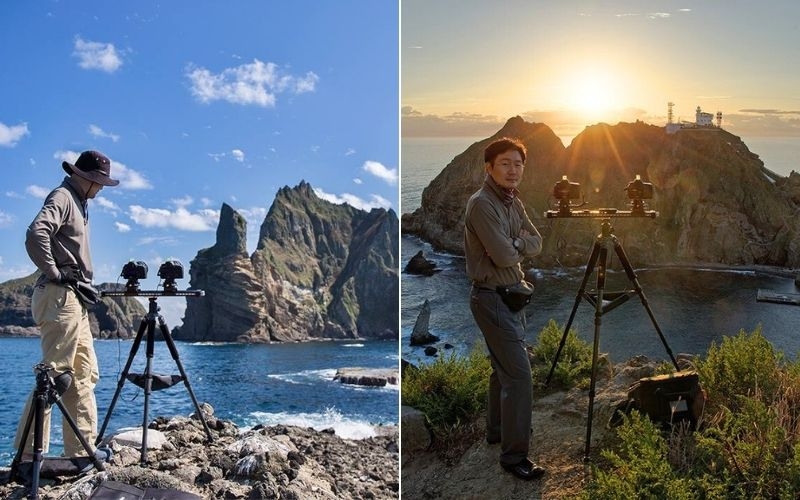- 한국어
- English
- 日本語
- 中文
- العربية
- Español
- Français
- Deutsch
- Pусский
- Tiếng Việt
- Indonesian
By Honorary Reporter Volga Serin Suleymanoglu from Turkiye (Turkey)
Photos = Kwon O-chul
As a professional photographer who has studied the field since age 13, I have long admired the work of Kwon O-chul, Korea's first astrophotographer. Also called astronomical imaging, astrophotography is the photography or imaging of astronomical objects, celestial events and the night sky.
Kwon is the first Korean to have a photo, "Auroral Substorm over Yellowknife," on March 25, 2011, named as NASA's Astronomy Picture of the Day.
The following are excerpts from an email interview with him between May 23 and June 9.

This snap of the Uyuni Salt Flats in Bolivia was taken in 2022.
Briefly introduce yourself and how you got into your field.
I am an astrophotographer specializing in night sky photography, video and virtual reality. My work is displayed at the planetarium of Korea's National Science Museum.
A book can change your life, and for me, it was Korea's first constellation guide that I read in high school. It sparked my love for the stars and led me to capture their beauty through photography.

This 2015 photo is of Gameunsa Temple Site in Gyeongju, Chungcheongbuk-do Province.
What was your first experience with astrophotography?
In 1992 as a freshman at university, I took my first photograph with my father's film camera. A picture of stars I took back then was exhibited at my first solo exhibition. Though the stars appeared blurry due to the morning mist and dew on the lens, I felt my photo truly captured the essence of dawn.
What unforgettable shoot in Korea was especially difficult?
It was a Maitreya Buddha statue at a temple site in Chungcheongnam-do Province. I tried to capture star trails there for about 12 hours but wasn't satisfied with the results, so I continued shooting for about 10 years but never got the proper photo. Over time, new structures were added to the site and the temple has grown more prominent, making it difficult to continue shooting there.

Kwon's NASA-recognized photo "Auroral Substorm over Yellowknife" was taken in Canada in 2011.
How does your cultural background influence your work?
I have many series that incorporate traditional Korean subjects, but the night sky is the same everywhere on Earth. The background changes depending on where you're viewing it.
Does Korea have new developments or trends in astrophotography?
In the past, astrophotography was primarily done by professionals using film cameras. Now with digital cameras so advanced, it's accessible to everyone. The growing trend toward intense post-processing is creating eye-catching images, though these often diverge from what the naked eye sees.

On the left is a 2020 photo of Jupiter, Saturn and the moon and on the right is a 2011 view from the peak of Hallasan Mountain on Jeju Island.
Where is the most impressive night sky view you've seen in Korea?
The view of stars from the top of Hallasan Mountain on Jeju Island. It's a national park so staying overnight isn't allowed, but I obtained permission for a documentary shoot. From the nation's highest peak, I saw the stars and lights of fishing boats on the night sea.
Where are the best places to see the night sky in Korea?
For places near Seoul, Hwacheon Cho Gyeongcheol Observatory in Hwacheon, Gangwon-do Province, is known for having the darkest skies in Korea. If the weather is good, it's the best place to see the Milky Way Galaxy.

These shots of Dokdo Island are from 2017.
What is your philosophy as an astrophotographer?
My mission is to convey the awe I feel to others through photography; it's a fulfilling profession. First and foremost, I must earn money and be happy for this to be my profession.
What projects you are planning?
Solar activity is at its peak, so the auroras appear very strong. Over the next few years, my biggest project will be photographing the Northern Lights.
What advice do you have for aspiring astrophotographers?
In life, following what you want rather than money seems to ultimately increase the likelihood of happiness.
msjeon22@korea.kr
*This article is written by a Korea.net Honorary Reporter. Our group of Honorary Reporters are from all around the world, and they share with Korea.net their love and passion for all things Korean.